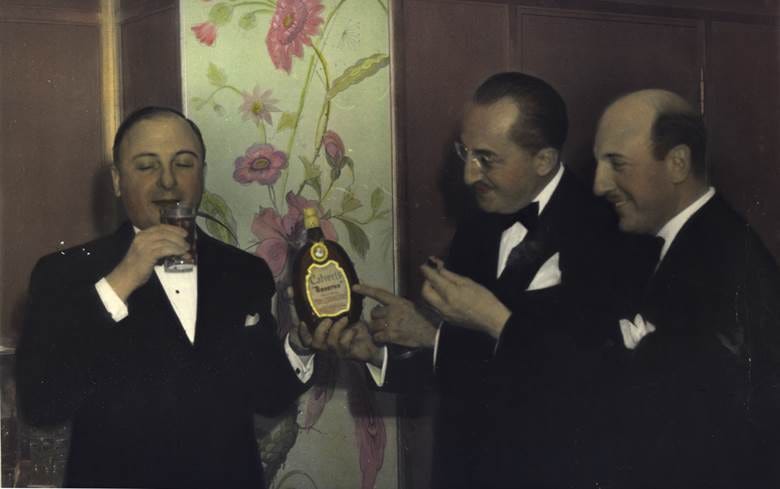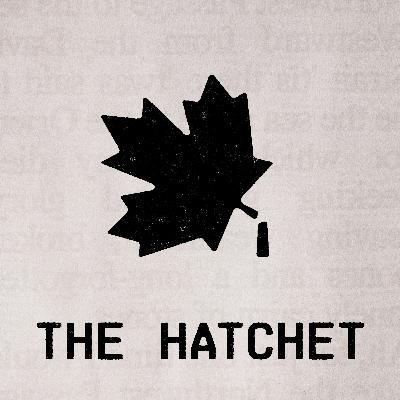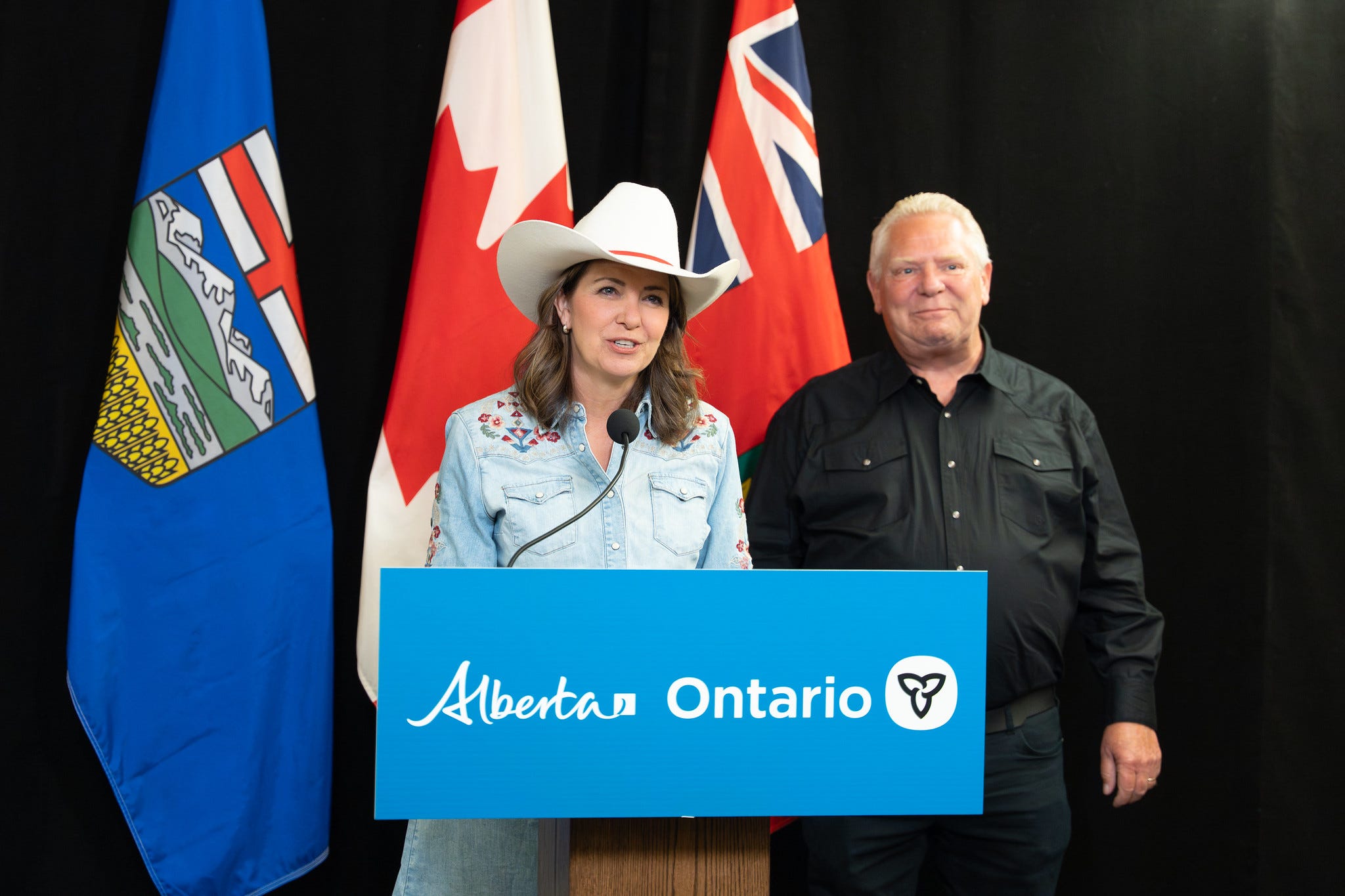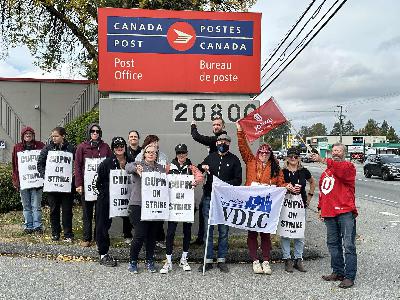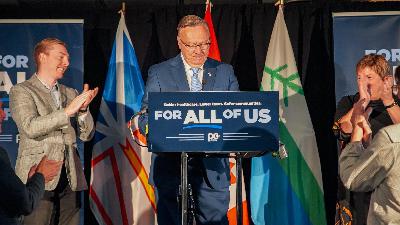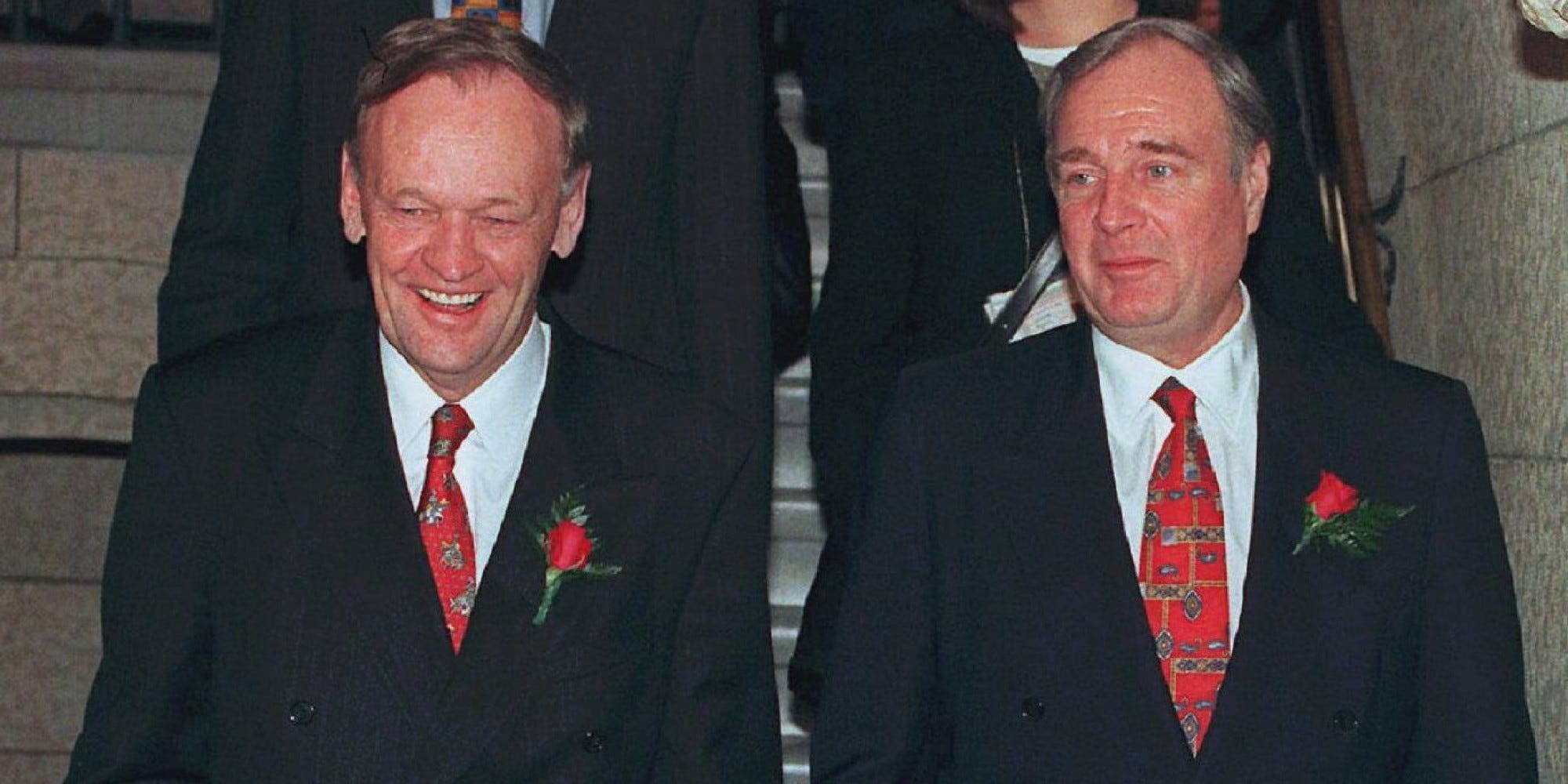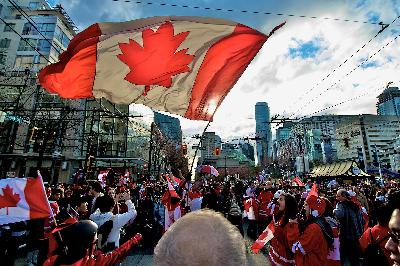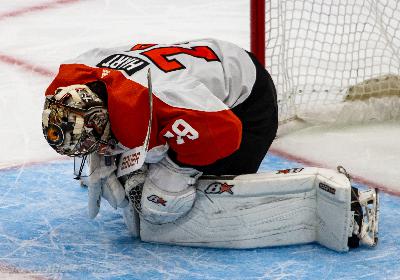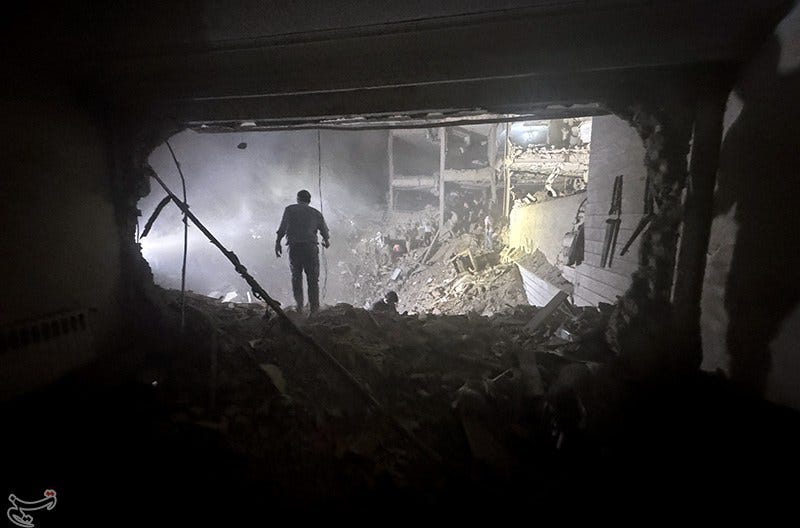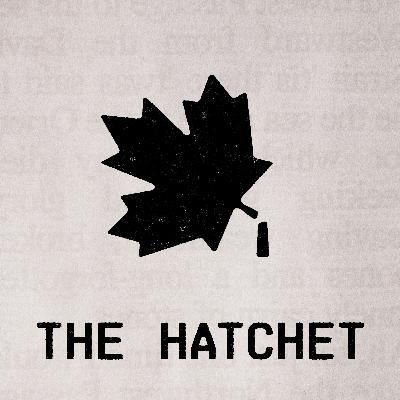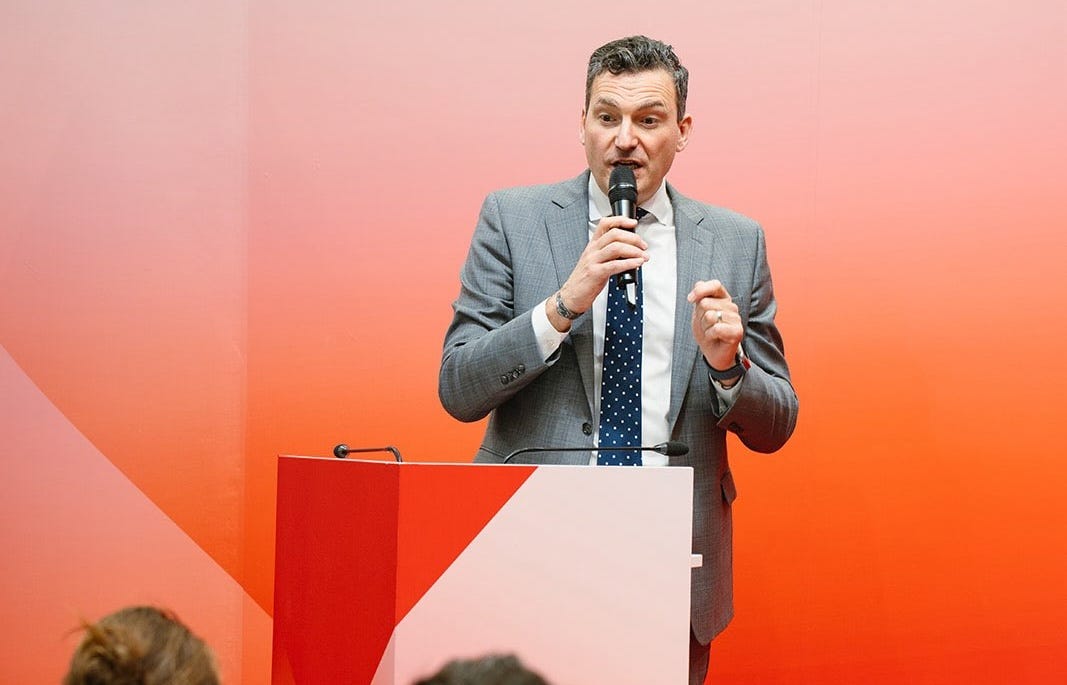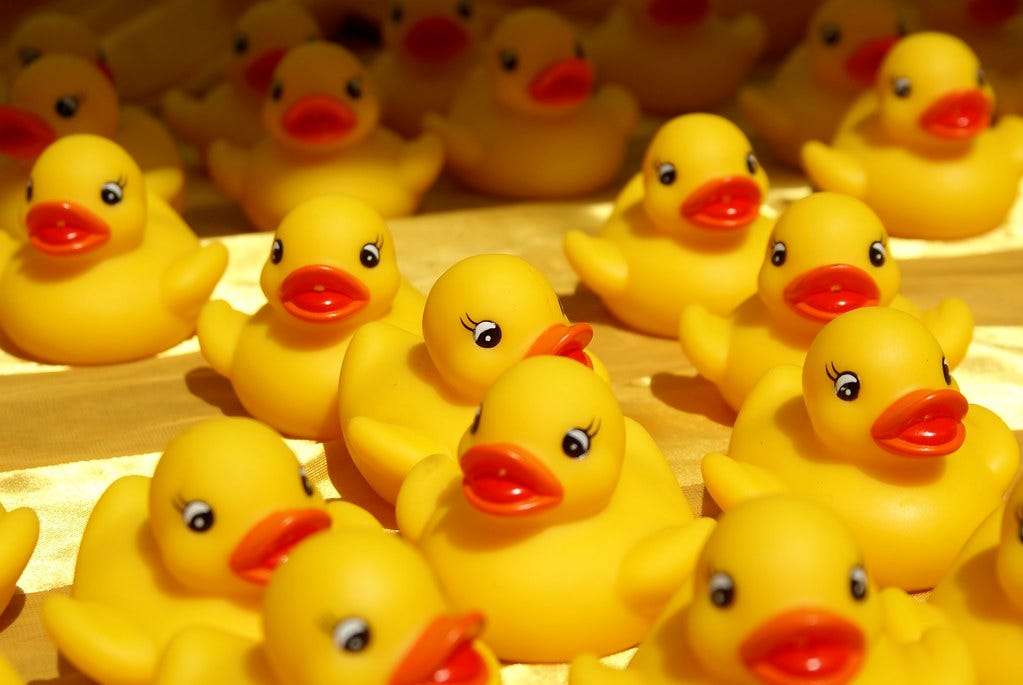Discover The Hatchet
The Hatchet

The Hatchet
Author: Hatchet Media
Subscribed: 144Played: 4,169Subscribe
Share
© Hatchet Media
Description
The Hatchet is a weekly podcast and newsletter dedicated to exposing power and money in Canada. Hosted by Arshy Mann, The Hatchet delivers important, original and fascinating journalism about how this country actually works, in a way that no one else can.
hatchetmedia.substack.com
hatchetmedia.substack.com
42 Episodes
Reverse
Support us at hatchetmedia.substack.comIn 1978, a South African accountant orchestrated one of the most audacious and ruthless hostile takeovers in the history of Canadian business.His name was Jack Cockwell. And over the next decade, he would build a corporate empire unlike anything Canada had ever seen.This is the third episode in our series examining the history of Brookfield. In our first two episodes, we traced the company’s lineage through Brazilian Traction, the neo-colonial monopoly that dominated South America, and through the Bronfmans, the bootlegging dynasty that supplied liquor to American gangsters during Prohibition.But those were just the origin stories. This episode is about what happened when those two worlds collided.Edper-Brascan controlled over 500 companies. The beer you drank, the team you watched, the mall you shopped at, the house you lived in — all of it could be traced back to this sprawling conglomerate. At its height, it was worth more than $120 billion.All of this was Jack Cockwell’s domain. Immigrant, corporate philosopher, ruthless operator, Cockwell single-handedly imposed his will on Canada’s business establishment and dominated the 1980s like no one else.But by the end of the decade, people on Bay Street began to whisper.Something was rotten at the heart of Cockwell’s empire. They said that the whole thing was a mirage. A lie. A house of card waiting to fall over.They all turned out to be right.To learn more:The Brass Ring: Power, Influence and the Brascan Empire by Patricia Best & Ann ShortellEdper by Keith Dalrymple“The Edper Puzzle” by Kimberly Noble in The Globe and Mail“The Second Coming” by Rod McQueen in The Financial Post“Fears for a Leveraged Leviathan” by Clyde Farnsworth in The New York Times“He was a titan of Bay Street and a senator. But J. Trevor Eyton died owing millions in taxes and on the verge of bankruptcy” by David Bruser & Jesse McLean in The Toronto Star This is a public episode. If you'd like to discuss this with other subscribers or get access to bonus episodes, visit hatchetmedia.substack.com/subscribe
Support us at hatchetmedia.substack.comThis is the second episode in our series about Brookfield, the Canadian financial giant. In our first episode, we told you about one half of the company’s corporate lineage — Brascan, the Canadian monopoly that dominated Brazil for half-a-century.But Brookfield has another parent — the Bronfman family. And their story is even more remarkable.It begins in the dusty prairie towns of Saskatchewan at the turn-of-the-century, where Jewish cowboys and American gangsters came together to create one of the great fortunes in world history.And behind every great fortune, there is a great crime. And the crimes of the Bronfmans were numerous. But they were able to get away with it all, thanks to bribery, destruction of evidence and the intimidation of witnesses.For decades, the Bronfmans were able to write their own history of how their wealth was acquired. But the truth can only stay buried for so long.The Bronfman dynasty is one of the greatest dynasties that the Americas have ever seen. But like so many dynasties, they would fall apart into ignominy.And at the centre of all of this was the most powerful businessman in Canadian history, the kingpin himself — Sam Bronfman.Featured in this episode: Stephen Maher, Jordan CornishTo learn moreThe Bronfman Dynasty: The Rothschilds of the New World by Peter C. Newman“The ties that bind the Liberals and the Bronfmans” by Stephen Maher in Maclean’sThe Brass Ring: Power, Influence, and the Brascan Empire by Patricia Best & Ann ShortellThe Bronfmans: The Rise and Fall of the House of Seagram by Nicholas FaithMavericks: Canadian Rebels, Renegades and Anti-Heroes by Peter C. NewmanMusic“Throne of the Soul” by Nihilore. Adapted. Licensed under Creative Commons: By Attribution 4.0 License http://creativecommons.org/licenses/by/4.0/"Magic Escape Room"Kevin MacLeod (incompetech.com) Licensed under Creative Commons: By Attribution 4.0 License http://creativecommons.org/licenses/by/4.0/I dunno by grapes (c) copyright 2008 Licensed under a Creative Commons Attribution (3.0) license. Ft: J Lang, Morusque This is a public episode. If you'd like to discuss this with other subscribers or get access to bonus episodes, visit hatchetmedia.substack.com/subscribe
This episode was first published on April 12th, 2025. Happy New Year, Hatchet listeners!The chance to put out good journalism is its own reward, but to everyone who has listened, shared, or supported us over the last year—thank you. We wanted to kick off the year by updating you on our series on Brookfield. It’s been a long road, but we’ll be publishing the next two new episodes this week, with more to come later in the month.We can’t wait for you to hear it.But before you do, we wanted to re-publish the first episode in the series. It’s an important primer for an increasingly complicated story.Brookfield has been in the news constantly over recent months. The Conservatives attacked the company for moving the headquarters of one of their subsidiaries to New York City. The NDP have accused it of avoiding taxes through offshore havens. And Prime Minister Mark Carney, the former chairman of Brookfield Asset Management, has found himself on the defensive because of his association with the company.But what these political attacks miss is a far more important story. It’s a story of a company that has been central to Canada’s history and economy for more than a century.So what exactly is Brookfield? That’s a question that we here at The Hatchet have set out to answer.What we found was a company that almost defies description.Brookfield has been a financial universe unto itself, operating by a different set of cosmic laws and fundamental forces than other corporations.It’s a company that’s shown an almost unparalleled talent for reinvention. Over its 125-year-history, it’s morphed from a neo-colonial experiment to Canada’s most ruthless corporate raider to a seemingly boring storehouse of our collective pension earnings.Now it is one of a tiny handful of financial entities that sit at the very centre of the global economy.And so that’s why we’ll be spending this series focusing exclusively on this incredibly important and yet rarely understood company.We’ll be digging into its epic history, its contentious present and what the continued domination of firms like Brookfield could mean for everyday people.In this first episode, we shine a light on it’s first incarnation — Brazilian Traction, Light and Power — and how it managed to dominate the people of South America’s biggest nation for most of the 20th century.Featured in this episode: Tyler ShipleyTo learn moreCanada In The World: Settler Capitalism and the Colonial Imagination by Tyler ShipleyThe Brass Ring: Power, Influence and the Brascan Empire by Patricia Best & Ann ShortellLet Us Prey: The Practices and Profits of Canadian Corporations and Businessmen edited by Robert Chodos & Ray MurphyThe Light: Brazilian Traction, Light, and Power Company Limited, 1899-1945 by Duncan McDowallSupport us at hatchetmedia.substack.comThe Hatchet is a podcast and newsletter dedicated to exposing power and money in Canada. We deliver important, original and fascinating journalism about how this country actually works.Music: I dunno by grapes (c) copyright 2008 Licensed under a Creative Commons Attribution (3.0) license. Ft: J Lang, Morusque This is a public episode. If you'd like to discuss this with other subscribers or get access to bonus episodes, visit hatchetmedia.substack.com/subscribe
I’ve had a hard time knowing what to make of the still-unfolding saga around Jeffrey Epstein.Like basically everyone else in the world, I’ve been following the story with interest for years.Even before the Miami Herald’s explosive 2018 investigation into the extend of his sexual abuse and how he had been able to get away with it, I had a vague understanding of a man named Jeffrey Epstein who abused girls and hobnobbed with powerful men like Bill Clinton and Bill Gates.And since then we’ve learned so much more. There have been so many journalistic investigations into Epstein’s connections with the elite, into his finances and into the circumstances around his death.Of course, we’re still left with more questions than answers. Which has allowed Epstein to become this sort of Ur-conspiracy theory that people online obsess over. Was he a CIA asset or a Mossad agent? Was he collecting blackmail on the rich and powerful? Did he really kill himself?But somehow, there was a part of me that felt like these were the wrong questions to ask. That they didn’t explain exactly who this guy was and why he was able to get away with what he did for so long. And didn’t really get at the heart of why this story has global importance.And then just the other week, I read a piece by Canadian journalist Jeet Heer in The Nation that made it all make sense to me.Heer argues that the Epstein was — alongside many other things — a warlord.He was basing this assessment on a number of articles that have been coming out of publications like Drop Site News and Reason that examine troves of email correspondence that Epstein had that the mainstream media is so far refusing to report on.And the case he makes is compelling. So I decided to give Jeet a call and ask him all about it.Featured in this episode: Jeet HeerTo learn more"Jeffrey Epstein Was a Warlord. We Have to Talk About It." by Jeet Heer in The Nation"Jeffrey Epstein and the Mossad: How The Sex-Trafficker Helped Israel Build a Backchannel to Russia Amid Syrian Civil War" by Murtaza Hussain & Ryan Grim in Drop Site News"Inside Jeffrey Epstein's Spy Industry Connections" by Matthew Petti in ReasonSupport us at hatchetmedia.substack.comThe Hatchet is a podcast and newsletter dedicated to exposing power and money in Canada. We deliver important, original and fascinating journalism about how this country actually works.Music: I dunno by grapes (c) copyright 2008 Licensed under a Creative Commons Attribution (3.0) license. Ft: J Lang, Morusque This is a public episode. If you'd like to discuss this with other subscribers or get access to bonus episodes, visit hatchetmedia.substack.com/subscribe
This is a free preview of a paid episode. To hear more, visit hatchetmedia.substack.comThe much anticipated budget is finally here and it promises to make "Canada Strong."Between the eye-popping promise to enable $1 trillion dollars in investments over the next five years and the $78.3 billion deficit, there’s a lot to take in.And that’s before we get into the really critical stuff… like maybe Canada will try to join Eurovision for some reason? (We don't talk about Eurovision at all).Today on The Hatchet, Jordan sits down with Arshy to break down the budget and try to make sense of what this all means for Canada.Support us at hatchetmedia.substack.comThe Hatchet is a podcast and newsletter dedicated to exposing power and money in Canada. We deliver important, original and fascinating journalism about how this country actually works.Music: I dunno by grapes (c) copyright 2008 Licensed under a Creative Commons Attribution (3.0) license. Ft: J Lang, Morusque
So last week, Alberta Premier Danielle Smith used the notwithstanding clause to force Alberta teachers back to work.It’s the first time the notwithstanding clause has ever been used in this kind of a manner to end a labour action. And that’s led to some softening of support for Danielle Smith.But here’s the truth. The latest polls show that if an election were held today, Danielle Smith’s United Conservative Party would still easily come out on top.Why is that? How is Smith’s appeal so resilient? And why the hell can’t Naheed Nenshi and the Alberta NDP get their s**t together?Well, luckily for us, Jeremy Appel from The Orchard is here to answer those questions and many more.A few months ago we had a great discussion with Jen Gerson about the unique political figure that is Danielle Smith and her relationship with Alberta’s nascent sovereignty movement. You can think of this conversation with Jeremy as a bit of a sequel to that one.We talk about some of the underlying reasons behind the teacher’s strike, Smith’s continued flirtation with separatism, how she holds her coalition together with culture wars, the return of pipeline politics and of course, the many failures of Alberta’s NDP.Now just for context, this was recorded before Smith invoked the notwithstanding clause, but the discussion is still just as relevant today.Support us at hatchetmedia.substack.comThe Hatchet is a podcast and newsletter dedicated to exposing power and money in Canada. We deliver important, original and fascinating journalism about how this country actually works.Music: I dunno by grapes (c) copyright 2008 Licensed under a Creative Commons Attribution (3.0) license. Ft: J Lang, Morusque This is a public episode. If you'd like to discuss this with other subscribers or get access to bonus episodes, visit hatchetmedia.substack.com/subscribe
In 1965, Canada’s postal workers did something so radical, so unprecedented, that it shook our country’s political establishment to the core.They went on strike.It was radical and unprecedented because up until then public employees had no right to walk off the job. But for two weeks, postal workers conducted an illegal wildcat action which, by the end of it, saw them winning the right to strike for almost all government workers.Over the next few decades, you’d see the same pattern time and time again. In the 1970s, union leaders were jailed for defying back-to-work legislation. And in 1981, the union won the right for paid-maternity leave, a first for the public sector, and a right that would gradually expand to many other workers.In other words, you can attribute many of our labour rights, and even key planks of the welfare state, to the resolve of posties past.But the age of the noble postal worker appears to be coming to an end. The Liberal government announced major cuts to Canada Post’s core services last months.And I know what you’re thinking.This was all inevitable, wasn’t it?After all, who sends letters nowadays? Maybe once-upon-a-time Canada needed a public mail service, but those days are long behind us. And sure, we’re all sad for the thousands of those people at Canada Post who will be laid off, but that’s just the way of the world.That’s the narrative that you’re hearing regurgitated in comment sections across the internet and in quotes from business professors to the mainstream press.But the ongoing labour dispute between Canada Post and its workers is far more complicated, and far more important, than that simplistic story.Instead this is a story about the hollowing out of the Canadian state. About the gigification of work. About how the managerial class places their need to control workers over the viability of the actual businesses that they run.So to talk about it all, we’re bringing on Adam D.K. King, a labour studies professor at the University of Manitoba and a labour columnist for The Maple, who has been following this story for years.Featured in this episode: Adam D.K. KingTo learn more"Canada Post’s Moment Of Reckoning May Finally Be Here" by Adam D.K. King in The Maple"Return to Sender: As Canada Post evades bankruptcy, workers push back on a future where efficiency trumps the collective" by Stephan Boissonneault in Maisonneuve"Liberal government instructs Canada Post to end home delivery, close some post offices" Peter Zimonjic in CBC NewsSupport us at hatchetmedia.substack.comThe Hatchet is a podcast and newsletter dedicated to exposing power and money in Canada. We deliver important, original and fascinating journalism about how this country actually works.Music: I dunno by grapes (c) copyright 2008 Licensed under a Creative Commons Attribution (3.0) license. Ft: J Lang, Morusque This is a public episode. If you'd like to discuss this with other subscribers or get access to bonus episodes, visit hatchetmedia.substack.com/subscribe
I think it’s kind of funny how we talk about election campaigns while they’re in progress. Between the polling and the poll aggregators, there’s often a feeling of inevitability to the result.But it also makes those times when the result is unexpected, when the actual will of the voters turns out to be very different from what the polls and the pundits predicted, to stand out in stark relief.We got one of those last week.The polls that were conducted in Newfoundland and Labrador’s provincial election campaign showed that the incumbent Liberals were set to handily win another majority, which would have been their fourth victory in a row. The only question seemed to be how big their victory would be.But it was not to be.The Progressive Conservatives, led by the mild-mannered Tony Wakeham, prevailed, rendering John Hogan a half-year premier.But really, all of this has just been a capper to an incredibly strange year in Newfoundland and Labrador politics.It started when Premier Andrew Furey announced that he and Quebec premier François Legault had created a framework for a new deal around Churchill Falls. Since 1969, Newfoundland and Labrador has provided unbelievably cheap energy to Quebec from Churchill Falls. The lopsided arrangement has been a thorn-in-the-side for the province ever since.We talked about this all in-depth earlier this year in an episode about Churchill Falls.But not long after announcing this new deal, Furey resigned. With no explanation.The PC’s election victory has put the Churchill Falls deal, which was the centrepiece of the Liberal campaign, into question.So what does all of this mean for Newfoundland and Labrador, for Churchill Falls and for the country during a testy time for Confederation?I decided to call up friend of The Hatchet Ed Hollett, one of the keenest political observers on the Rock, to talk about it all.Featured in this episode: Edward Hollett (Bond Papers)To learn moreThe Hundred Years' War between Newfoundland and Quebec from The Hatchet"Easy grift and hard graft" by Edward Hollet in Bond Papers"Red Team. Blue Team." by Edward Hollet in Bond PapersSupport us at hatchetmedia.substack.comThe Hatchet is a podcast and newsletter dedicated to exposing power and money in Canada. We deliver important, original and fascinating journalism about how this country actually works.Music: I dunno by grapes (c) copyright 2008 Licensed under a Creative Commons Attribution (3.0) license. Ft: J Lang, Morusque This is a public episode. If you'd like to discuss this with other subscribers or get access to bonus episodes, visit hatchetmedia.substack.com/subscribe
Why can’t the government do stuff?I’m not being facetious here. I think most Canadians — in fact, most people who live in western democracies — have a feeling that their governments are incapable of actually delivering on projects or providing services.But it wasn’t always this way. There was an era, not so far back in the future, when the Canadian governments turned petrochemicals into plastics, dug uranium out of the ground, operated airlines and railroads and so much more.But today, governments seem to be focused exclusively on two things: handing out money to big businesses and overseeing an increasingly fraying social safety net.So how exactly did we get here?Nora Loreto has part of the answer. Earlier this year, she released the second book in her Canada in Decline series called Corporate Control.In it, she details the policy decisions that hollowed out the Canadian government and makes it next-to-impossible to actually get anything done.In our conversation, we cover a lot of ground, from free trade to the Chrétien/Martin austerity budgets, the rise and fall of Crown corporations and why governments don’t care about Canadian culture.I think it’s really one of the most interesting discussions we’ve had on this show so far, so I’m excited for you all to give it a listen.Featured in this episode: Nora LoretoTo Learn MoreCorporate Control by Nora Loreto"What Canadian nationalism?" by Nora Loreto on SubstackThe Social Safety Net by Nora LoretoSupport us at hatchetmedia.substack.comThe Hatchet is a podcast and newsletter dedicated to exposing power and money in Canada. We deliver important, original and fascinating journalism about how this country actually works.Music: I dunno by grapes (c) copyright 2008 Licensed under a Creative Commons Attribution (3.0) license. Ft: J Lang, Morusque This is a public episode. If you'd like to discuss this with other subscribers or get access to bonus episodes, visit hatchetmedia.substack.com/subscribe
Back a few years ago, there was this moment where it felt like there was a movement building against monopolies.It started in the United States with academics like Lena Khan and Tim Wu and journalists like Matt Stoller speaking out about the creeping corporate concentration that was infecting so much of American life.Eventually that movement found purchase in the Biden administration, which put antitrust at the centre of their agenda.And because Canada is always a little bit behind the United States, we got our own version of that movement. And in a weird way, Jordan and I were both a part of that, when in 2022 and 2023 we put out our series on Monopolies on Canadaland COMMONS. It really felt like momentum was building and that everyday people were getting more and more upset about the domination of the big banks and the big telcos and the big grocery chains.But recently, it’s felt like that momentum has kind of….gone away. And there’s still plenty of people working on this issues here, but at least in terms of journalism, the trade war and the Trump administration and a million other things seem to have distracted away from what I still believe is such an essential issue.And that’s why I was so excited to get an email from Peter Nowak a few months ago. He said he had an idea and wanted to talk.Now for those of you don’t know Peter, he’s a longtime journalist who has done some amazing work over the years.When I was getting interested in business reporting more than a decade ago, Peter was one of the best out there. His main focus was the telecom industry. And that was a really interesting time for the telecoms. The Harper government was actually putting some pressure on them and had appointed an aggressive CRTC commissioner instead of just the usual corporate toady. And Peter was a dogged reporters covering all of this and was honestly a bit of an inspiration for me. He was the kind of journalist that I one day wanted to be. But he’d gone off to work at tech savvy, a small internet service provider, a few years back, so I thought he was out of the game.So I was really excited when he told me that not only did he want to get back into journalism, but that he saw our Monopoly series on COMMONS as his primary inspiration.You know, when you hear that kind of thing from someone you really admire, it’s pretty damn flattering. But more than that, I just think it’s so important, so necessary right now to have dedicated journalists on the monopoly beat.This week, Peter has finally launched his own Substack called Do Not Pass Go, the first two episodes are out already, and you should absolutely go subscribe and give it a listen.And we wanted to sit down to talk to him about reporting on monopolies, what he has in store and why he always forces himself to drive to another city just to watch a movie.Featured in this episode: Peter NowakTo Learn MoreDo Not Pass Go: The Debut Episode The Great Awakening: Competition Commissioner Matthew BoswellSupport us at hatchetmedia.substack.comThe Hatchet is a podcast and newsletter dedicated to exposing power and money in Canada. We deliver important, original and fascinating journalism about how this country actually works.Music: I dunno by grapes (c) copyright 2008 Licensed under a Creative Commons Attribution (3.0) license. Ft: J Lang, Morusque This is a public episode. If you'd like to discuss this with other subscribers or get access to bonus episodes, visit hatchetmedia.substack.com/subscribe
This is a free preview of a paid episode. To hear more, visit hatchetmedia.substack.comVancouver is a funny place.It’s without a doubt the most beautiful city in the country, probably also the continent and maybe even the world — at least when the sun’s shining. The rainy season, which lasts around eight months of the year, can turn it into a dreary, inescapable limbo.It’s a place filled luxury car dealerships, high-end watch stores and other markers of flamboyant wealth. But also absolutely heart-wrenching displays of visible poverty.Vancouverites are simultaneously proud of their city, and often deeply insecure about how it compares to other metropolises.It’s also, I’d argue, deeply misunderstood by the rest of the country.Strangely enough, Vancouver, and British Columbia more broadly, are left out of the national conversation, despite its population, economic importance and unique political culture.There’s this conversation I always have with my journalism friends from BC about how whatever’s happening in Vancouver eventually ends up becoming the rest of the country’s problem. You’ve seen that over and over again, whether it’s about the housing crisis or debates around drug use or crime.And so I figured, why not just bring one of those friends on to have that discussion right here on The Hatchet.Last week I was at a wedding in St. John’s, Newfoundland, where I was able to corner my old friend and CBC Vancouver’s municipal reporter Justin McElroy, and bully him into being on the show.For the British Columbians in the audience, Justin really needs no introduction. He is by almost any measure one of the best-known journalists in the province. And he’s gained this enormous cult following, not just through his reporting or his penchant for ranking things, but because he has an almost uncanny ability to make people care about the things that he cares about.And in addition to being one of my oldest friends, Justin is also the man who taught me how to be a journalist more than fifteen years ago.In this conversation, we talk a little bit about Justin’s erstwhile fame, and then give listeners a full political education in all things Vancouver and why the rest of the country should be paying for attention.And after that, for our paid supporters, we have a little something extra. Justin and I do some reminiscing about the good old days, when we worked together at The Ubyssey, UBC’s student newspaper. So if you want to hear about how I forced Justin to resign as editor of the newspaper, whether or not I was a decent roommate or the time we were in an honest-to-god zombie apocalypse, make sure to become a paid supporter today.Featured in this episode: Justin McElroyTo Learn More:"B.C. government says more oversight coming for dysfunctional municipalities" by Justin McElroy in CBC News"Vancouver's byelection a story of big lines, big passion, and ABC coping with a big loss" by Justin McElroy in CBC NewsThe Four Pillars Revisited by Sam Fenn and Gordon Katic in The TyeeSupport us at hatchetmedia.substack.comThe Hatchet is a podcast and newsletter dedicated to exposing power and money in Canada. We deliver important, original and fascinating journalism about how this country actually works.Music: I dunno by grapes (c) copyright 2008 Licensed under a Creative Commons Attribution (3.0) license. Ft: J Lang, Morusque
This is a free preview of a paid episode. To hear more, visit hatchetmedia.substack.comThis episode is available immediately to paid supporters. For unpaid supporters, we're providing a short preview. Please consider supporting us at hatchetmedia.substack.comThe Canadian Pacific created a nation. But it also destroyed nations in the process.This is our third and final episode in our series about the building of the CPR and the foundation of Canada. And at the heart of this story is an unescapable question — what did it cost to create this country? And who paid that terrible price?In the years after Confederation, Canada signed treaties with numerous Indigenous nations on the plains, promising aid in the event of a famine. But when the buffalo were slaughtered into extinction, the Canadian government was unable — or unwilling — to fulfill its treaty obligations.At the same time, the CPR was facing financial ruin. And if it fell, Canada as an independent political entity would almost certainly cease to exist.Famine, disease, economic collapse — all of these calamities came to a head in 1885, the single most significant year in Canadian history. Which is when Louis Riel rose up once again. Featured in this episode: Stephen BownTo Learn More:Dominion: The Railway and the Rise of Canada by Stephen BownThe Diary of Dukesang Wong: A Voice from Gold Mountain by Dukesang Wong, David McIlwraith & Wanda Joy HoeThe North-West Is Our Mother: The Story of Louis Riel's People, the Métis Nation by Jean TeilletThe National DreamSupport us at hatchetmedia.substack.comThe Hatchet is a podcast and newsletter dedicated to exposing power and money in Canada. We deliver important, original and fascinating journalism about how this country actually works.Music: I dunno by grapes (c) copyright 2008 Licensed under a Creative Commons Attribution (3.0) license. Ft: J Lang, Morusque
This is a free preview of a paid episode. To hear more, visit hatchetmedia.substack.comThis episode is available immediately to paid supporters. For unpaid supporters, we're providing a short preview. Please consider supporting us at hatchetmedia.substack.comThere’s a story we like to tell ourselves about how Canada was built. It’s about John A. Macdonald’s fearless vision and how Canadians across the continent came together in a noble quest to create a nation.And then there’s what actually happened.This is the second instalment in our series on the Canadian Pacific Railroad and the founding of Canada. Paid supporters can listen to it immediately. And if you aren’t already supporting us, please consider joining The Hatchet family, it’s only $11 a month.In this episode, we're looking at what happens when the most powerful politician in the land gets into bed with the richest man in the country. And how the workers caught in the wake of their machinations end up paying the price. Prime Minister John A. Macdonald promised to build a railroad that would unite Canada, and went so far as to rig an election to get his way. But the robber barons who financed his corruption ended up turning on him. They blackmailed Canada’s first prime minister and plunged the country into a crisis. And after the rich and powerful were done destroying each other, thousands of workers risked life and limb to build an industrial marvel that would benefit everyone except them. Many of the men who crossed an ocean to do this work wouldn’t make it home alive. And even those who survived saw their rights stripped away, year after year.This is the story of how Canada was really built — political corruption, exploitation and a willingness to sacrifice everyday people at the altar of the progress.Sound familiar?The final episode in our series will be available to paid supporters tomorrow.Featured in this episode: Stephen BownTo Learn More:Dominion: The Railway and the Rise of Canada by Stephen BownThe Diary of Dukesang Wong: A Voice from Gold Mountain by Dukesang Wong, David McIlwraith & Wanda Joy HoeThe North-West Is Our Mother: The Story of Louis Riel's People, the Métis Nation by Jean TeilletThe National DreamSupport us at hatchetmedia.substack.comThe Hatchet is a podcast and newsletter dedicated to exposing power and money in Canada. We deliver important, original and fascinating journalism about how this country actually works.Music: I dunno by grapes (c) copyright 2008 Licensed under a Creative Commons Attribution (3.0) license. Ft: J Lang, Morusque
Most countries have a founding myth of some kind, a moment in time that serves as an anchor for the grand national story.For the United States, it’s the American Revolution and the founding of the republic. France’s history goes back centuries, but their national narrative begins with the storming of the Bastille. Which is why Bastille Day is their most important holiday.England has the Norman invasion and the Battle of Hastings. And Mexicans usually trace their history back to the fall of Tenochtitlan.But Canada, as usual, is strange.Some will inevitably point to the Charlottetown and Quebec City conferences as the moment when our national story begins. And sure, that may be where the idea of Confederation was born. But the country that emerged was simply a union of what are today only four of our provinces.The real Canada, the one made up of a massive landmass that stretches from the Atlantic to the Pacific, across the entire length of the North American continent, the country we have today, wasn’t born on July 1st, 1867. That nation came into existence on November 7, 1885, when the last spike of the Canadian Pacific Railway was driven into the ground at Craigellachie, British Columbia.It seems fitting to me that Canada wasn’t created out of some spirit of revolutionary zeal or war of conquest or high-minded ideal.Instead, our grand national story is about an industrial project.And I find that apt. Because the story of the CPR truly does speak to what it means to be a Canadian. You can see so many of the themes of our history, so much of what it means to be Canadian, in this monumental endeavour.There’s the resistance to the American behemoth. The taming of a wild, unforgiving landscape. The ingenuity and persistence and grit of thousands of Canadians working together to build one of the greatest marvels of the industrial age.But there’s also the unparalleled corporate and political corruption. Labour exploitation on a scale that’s hard to fathom. And the utter subjugation of the Indigenous peoples of this land.And all of that put together is what makes the story of the construction of the CPR a fitting foundational myth for Canada.So on this episode of The Hatchet, at a time when Canadian nationalism is peaking, we’re going to lay out the true story of the Canadian Pacific Railway in all of its glorious and gory detail. In order to bring us closer to an honest understanding of who we are as a nation, for good and for ill.Featured in this episode: Stephen BownTo Learn More:Dominion: The Railway and the Rise of Canada by Stephen BownThe North-West Is Our Mother: The Story of Louis Riel's People, the Métis Nation by Jean TeilletThe National DreamThe Diary of Dukesang Wong: A Voice from Gold Mountain by Dukesang Wong, David McIlwraith & Wanda Joy HoeSupport us at hatchetmedia.substack.comThe Hatchet is a podcast and newsletter dedicated to exposing power and money in Canada. We deliver important, original and fascinating journalism about how this country actually works.Music: I dunno by grapes (c) copyright 2008 Licensed under a Creative Commons Attribution (3.0) license. Ft: J Lang, Morusque This is a public episode. If you'd like to discuss this with other subscribers or get access to bonus episodes, visit hatchetmedia.substack.com/subscribe
During my lifetime, there have only been a handful of times that quote unquote Canadian nationalism has been a potent force of any kind.The first, actual wave of Canadian patriotism I ever encountered was in the year 2000. That’s when Molson put out their “I Am Canadian” ad.You know the one I’m talking about.And for many people, that kind of came to encapsulate what it meant to be Canadian. Even though, at the end of the day, they’re paper-thin slogans from a beer company’s advertising campaign.And to tell you the truth, that’s kind of what I’ve been feeling about the surge in Canadian nationalism over the last few months. Aside from most people agreeing that Trump is a b*****d and we don’t want to join the United States, this much-vaunted, much-discussed nationalistic wave lacks substance. It’s paper-thin.It’s Mike Myers, a guy who hasn’t lived here in three decades. It’s shopping at Loblaws instead of Walmart. And, weirdly, it’s loosening regulations on mining and oil companies in the name of patriotism.But I do think there could be another way. There have been moments in our country’s history where we really wrestled with what it should mean to be Canadian. When different political parties and social movements put forward their own visions of nationalism.That’s why I wanted to talk to Luke Savage. Savage is a long-time journalist and one of the smartest thinkers on the left in Canada. He’s been one of the people I’ve been reading throughout the last few months to try to figure out how this moment of nationalistic fervour fits in with the rest of Canadian history.In our conversation, we cover a lot of ground, including Mark Carney’s cynical deployment of patriotic sentiment and why the left should once again embrace nationalism.And we spend a good amount of time talking about the most important Canadian political book every published, Lament for a Nation, which came out sixty years ago, but is still incredibly relevant today.Featured in this episode: Luke SavageTo learn more:“Why a 60-year-old surprise hit about the fall of John Diefenbaker is the most important Canadian read of 2025” by Luke Savage in The Toronto Star“Canadian Nationalism Is Back. Now What?” by Luke Savage in The Walrus“Canadian socialism against US domination” by Luke Savage on SubstackSupport us at hatchetmedia.substack.comThe Hatchet is a podcast and newsletter dedicated to exposing power and money in Canada. We deliver important, original and fascinating journalism about how this country actually works.Music: I dunno by grapes (c) copyright 2008 Licensed under a Creative Commons Attribution (3.0) license. Ft: J Lang, Morusque This is a public episode. If you'd like to discuss this with other subscribers or get access to bonus episodes, visit hatchetmedia.substack.com/subscribe
The Hockey Canada trial has been going on for two months now. And during that time, the Canadian media has meticulously covered every twist and turn that’s taken place in the London, Ontario courthouse.Five men — Michael McLeod, Dillon Dubé, Alex Formenton, Cal Foote and Carter Hart — have been accused of sexually assaulting a twenty-year-old woman, who is only being identified as E.M., after a Hockey Canada gala in 2018.All of them have pled not guilty and the judge is set to render a verdict on July 24.And while I’ve been following the trial closely, I’ve been especially interested in how the media has been covering the story, and the way that the public has been reacting to it all.Two years ago, Jordan and I made a series at Canadaland that focused specifically on the deep, systemic issues with hockey culture.And what became incredibly clear to us is that most of the media and the powers-that-be in the hockey world don’t understand or are unwilling to acknowledge what’s going on in the sport.During this trial, that’s become even more obvious. Because hockey doesn’t just have a problem with sexual violence. It has a problem with gang rape.Between 1989 and 2018, there was, on average, one alleged case of gang rape by professional hockey players every two years. And those are just the accusations that went public.And yet, every time this happens, the hockey world acts like it’s the first time. And the media tends to go along with it. Even when the press talks about the problem of sexual violence in hockey, they refuse to acknowledge the specificity.A handful of journalists and researchers — foremost amongst them Laura Robinson, who has been covering this for years, — have tried to explain what’s really happening.The truth is that, from a young age, many junior hockey players are hazed, beaten and sexually abused. And then are groomed by older players into engaging in group sex with their teammates. Sometimes these encounters are consensual for the girls and women involved. But too often, they’re not.All of this broader context has been missing from much of the coverage around the Hockey Canada trial.And that’s why I was relieved when I read a piece in The Globe and Mail by Andrea Werhun on this topic. Werhun is a writer and performer, best known for her memoir Modern W***e, which details her experience working as an escort and stripper. She was also a consultant on the most recent Academy Award Best Picture winner, Anora.And Werhun’s piece digs into all of this necessary context. And she also focuses in specifically on one piece of testimony from the complainant, in which she describes taking on a “porn star persona” during that night in the hotel room, as a coping mechanism.That quote became a cornerstone in the defence’s narrative disputing the allegations. And something that I’ve seen constantly brought up again and again in online comments that accuse EM of being a liar.My conversation with Werhun isn’t about trying to evaluate the criminal guilt or innocence of the men who are on trial. We won’t be digging into the conflicting stories or analyzing the specific evidence.This is about trying to understand the broader cycles of violence within men’s hockey.Featured in this episode: Andrea WerhunTo learn more:“Porn isn’t to blame for sexual assault” by Andrea Werhun in The Globe and Mail“The Problem Hockey Won’t Name” from Canadaland COMMONS“Anatomy of a scandal” by CBC’s The Fifth Estate“Legal decision for the ‘Hockey Canada 5’ won’t come for weeks, but judgment can be rendered” by Dan Robson and Katie Strang in The AthleticSupport us at hatchetmedia.substack.comThe Hatchet is a podcast and newsletter dedicated to exposing power and money in Canada. We deliver important, original and fascinating journalism about how this country actually works.Music: I dunno by grapes (c) copyright 2008 Licensed under a Creative Commons Attribution (3.0) license. Ft: J Lang, Morusque This is a public episode. If you'd like to discuss this with other subscribers or get access to bonus episodes, visit hatchetmedia.substack.com/subscribe
It’s so hard to know where to start a story. Choosing a starting point shapes the entire message and moral of whatever story you’re trying to tell.And that’s especially true when it comes to something like the recent Israeli and American bombardment of Iran.The simplest way to start would be to parrot what most Western governments and the mainstream media have been saying. For them, you need to begin with the fact that Iran was months, maybe even weeks, away from developing nuclear weapons. And that’s why Israel had to act. That of course ignores the fact that Rafeal Grossi, the head of the International Atomic Energy Agency, says that there’s no evidence they were developing an atomic bomb. But let’s ignore that for now.Instead, we could decide to start the story at another point, even a few weeks earlier. Let’s say June 3. That was when Israeli Prime Minister Benjamin Netanyahu began to be cross-examined during his corruption trial, which might see him land in prison. Netanyahu has succeeded numerous times in dragging out the trial, which has been going on for five years now, because he’s been leading the country, especially during times of war. However, this month, his coalition government appeared like it might fall apart. But while he’s at war with Iran, that’s certain to not happen.Maybe we could go back even further, say to 2022 when Iranian women were leading the largest protest movement in fifty years after a young woman, Mahsa Amina, was killed by the regime’s morality police. Will the bombardment by two hostile powers strengthen similar opposition movements or will it be the most hardcore and militaristic elements of the government that gain the upper hand? That’s not a question I see being asked by much of the media these days.Of course, we could go back even further. To 2018 when Donald Trump pulled the US out of an Iranian nuclear deal that had been working. To 2003 and George Bush’s Axis of Evil of speech and the invasion of Iraq. To the mid-90s when Ayatollah Ali Khamenei issued a fatwa against nuclear weapons, in all circumstances. To 1992, when Nentanyahu, then a backbencher, claimed that Iran was only a year away from developing a nuclear weapon.All the way back to the Islamic Revolution of 1979, that created this theocratic regime and caused millions of Iranians to flee the country. To the western-backed coup of 1953 that brought the hated Shah Mohammed Reza Pahlavi back to power because the democratically elected prime minister was planning on nationalizing the country’s oil reserves. Or maybe it would be best to start the mid-1800s, when Iran was so dominated by the Russian and British empires that they couldn’t even appoint their own cabinet ministers without foreign approval.Where you begin the story in some ways will determine what you think of it. And I think that helps me explain just how weird politicians and the mainstream media get when it comes to talking about this attack on Iran. They’re desperately grasping for any justification that they can get a hold of. At one moment, it’s all about ensuring that Iran doesn’t get nuclear weapons. Another, it’s retaliation for terror attacks and Iran’s support for Hezbollah or Hamas. Then all of a sudden it’s about regime change and freeing the Iranian people from tyranny. It reminds me so much of Iraq, which I’ve been thinking about a lot in the last few months. And while so far we haven’t heard any talk of a ground invasion, the Iraqi example is illustrative. Western governments and the media convinced themselves beyond any doubt that Saddam Hussein had weapons of mass destruction. Which of course wasn’t true. But if you had the temerity to suggest that it might not be, you were labelled either naive or heartless or an apologist for a monstrous regime.So during this moment, I wanted to talk a woman whose work I’ve followed for years, and who has been one of the most aggressive and thoughtful critics of the Iranian Regime. Samira Mohyeddin arrived in Canada as a child in 1979, one of so many refugees of the Islamic Revolution. She’s a longtime journalist whose work often focuses on highlighting the crimes of the Iranian government. But she’s also been an outspoken critic of Israel, especially the ongoing genocide in Gaza. So I wanted to know how a woman like Samira is thinking about everything that’s going on. And where the story starts for her.Featured in this episode: Samira MohyeddinTo learn more:“Iranians deserve a path to freedom that is also free from violence” by Samira Mohyeddin in The Globe and Mail“‘I urge you to hear the voices of the Iranian people.’ Nobel laureate Narges Mohammadi remains unbowed” by Samira Mohyeddin in The Globe and Mail“IAEA chief: No evidence Iran is building a nuclear weapon” in Al-Jazeera News“Dragging Out Netanyahu's Trial Is a Delay of Justice for the Israeli Public” by Sami Peretz in HaaretzSupport us at hatchetmedia.substack.comThe Hatchet is a podcast and newsletter dedicated to exposing power and money in Canada. We deliver important, original and fascinating journalism about how this country actually works.Music: I dunno by grapes (c) copyright 2008 Licensed under a Creative Commons Attribution (3.0) license. Ft: J Lang, Morusque This is a public episode. If you'd like to discuss this with other subscribers or get access to bonus episodes, visit hatchetmedia.substack.com/subscribe
Arshy and Jordan sit down to give a quick update about how things have been going, a sneak peak at some upcoming projects, and the future of The Hatchet. This is a public episode. If you'd like to discuss this with other subscribers or get access to bonus episodes, visit hatchetmedia.substack.com/subscribe
We’re now a month-and-a-half removed from the last federal election. And it feels like we’re finally starting to get a sense of how this government is going to, well, govern. Domestically, there’s been legislation on resource development and a lot of new powers for cops and border guards. Plenty of increased spending on defence and tax cuts. And internationally, Mark Carney has been doing a lot of hobnobbing with foreign leaders.Especially this week, where he’s been hosting the G7 summit in Alberta. So Jordan and I just wanted to explore some of the early signals that we’re getting from this government. There’s so much we could talk about, but for this episode we’ll be digging into the feds new AI approach and their approach to relations with India.And, it’s safe to say, neither of us are particularly impressed. Support us at hatchetmedia.substack.comThe Hatchet is a podcast and newsletter dedicated to exposing power and money in Canada. We deliver important, original and fascinating journalism about how this country actually works.Music: I dunno by grapes (c) copyright 2008 Licensed under a Creative Commons Attribution (3.0) license. Ft: J Lang, Morusque This is a public episode. If you'd like to discuss this with other subscribers or get access to bonus episodes, visit hatchetmedia.substack.com/subscribe
Point Roberts is one of the most unique places in North America. It’s a tiny spit of land right across the American border from the Vancouver suburb of Delta. But because it’s surrounded on three sides by water, it’s not connected to the rest of Washington state. It’s a community built by both Canadians and Americans — a physical manifestation of what the relationship between our two countries can look like when it’s at its best.But tensions are at a boiling point right now. And the biggest casualty of it all might be the most innocent and beautiful of all of god’s creatures — the rubber duck. Featured in this episode: Krystal King, Neil King, Donald FalkTo learn more“US Border Towns Are Being Ravaged by Canada's Furious Boycott” by Thomas Seal in Bloomberg News“Point Roberts starts to feel the cold shoulder from Canada” by Andrea Woo in The Globe and Mail“Canada's Nationalism Hits an Isolated U. S. Town” by William Borders in The New York TimesSupport us at hatchetmedia.substack.comThe Hatchet is a podcast and newsletter dedicated to exposing power and money in Canada. We deliver important, original and fascinating journalism about how this country actually works.Music: I dunno by grapes (c) copyright 2008 Licensed under a Creative Commons Attribution (3.0) license. Ft: J Lang, Morusque This is a public episode. If you'd like to discuss this with other subscribers or get access to bonus episodes, visit hatchetmedia.substack.com/subscribe



